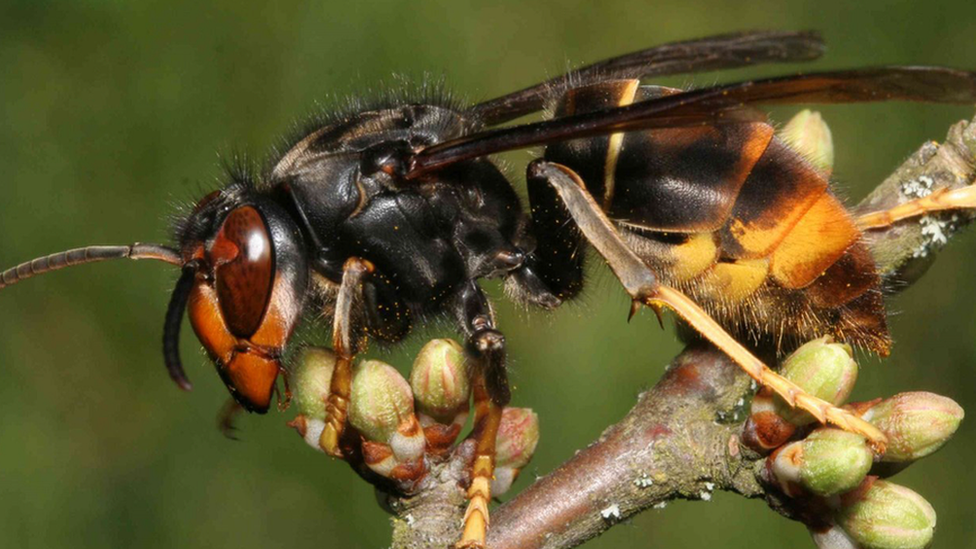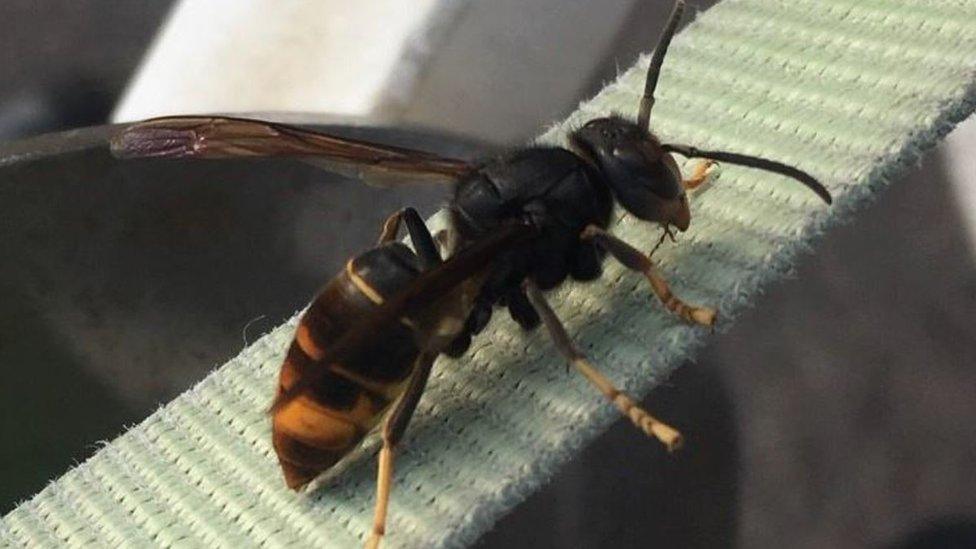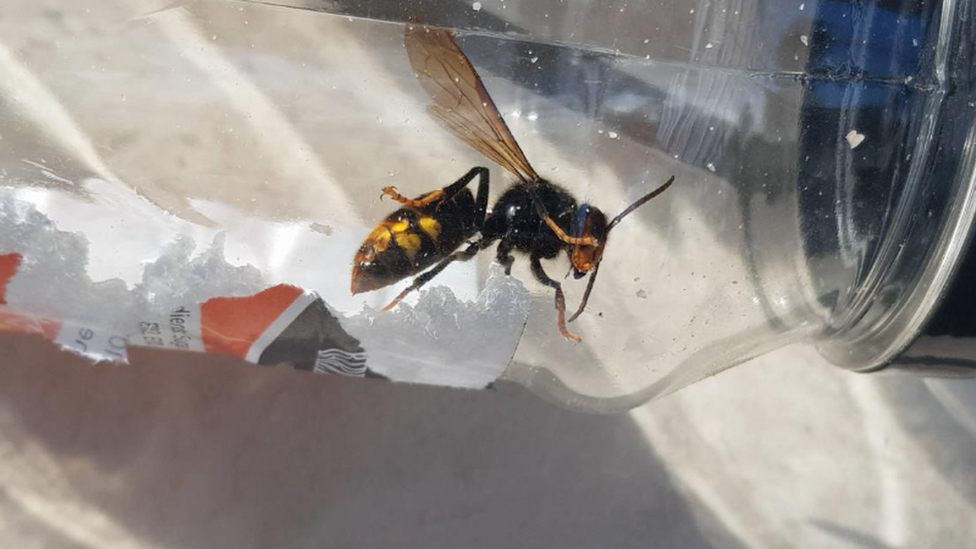Guernsey makes headway with tackling Asian hornets
- Published

Asian hornets were first spotted in the British Isles in 2016
Leaders have made headway in their efforts to control Guernsey's Asian hornet population.
In 2022, two primary and two secondary nests were destroyed, with nine queens caught, the government said.
The government said the species was a major threat to "biodiversity, pollinating insects and beekeeping activities".
They are also a public health risk as they can attack if nests are disturbed, it added.
The "invasive" species is an "aggressive predator" of other insects, with 30% of its diet made up of honeybees.
Francis Russell, the officer behind the Asian Hornet Strategy in Guernsey, said there had been a "low number" of Asian hornets last year.
He thanked islanders for their "vigilance" and asked they remain on the lookout for the species.
'Spring queening'
The Asian Hornet Strategy is aimed at lowering the species' population through monitoring and control.
From April to June, this involves "spring queening", or trapping queens as they emerge from hibernation or travel across the water from France.
Traps are placed every 500m (1,640ft) and monitored by landowners or householders.
Through summer and autumn, when queens move from their primary nests to larger secondary ones, islanders are encouraged to photograph and report suspected sightings.
This resulted in 262 reported sightings last year, with 15 positively identified as invasive hornets.
The government said 130 secondary nests had been destroyed in Jersey.

Follow BBC Guernsey on Twitter, external and Facebook, external. Send your story ideas to channel.islands@bbc.co.uk, external.
Related topics
- Published11 August 2022

- Published17 May 2022
- Published17 April 2022
